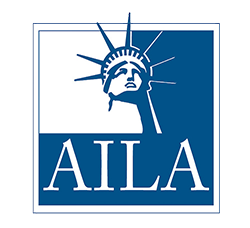
What are the Rules Around Terminating Temporary Benefits?
Terminating Temporary Benefits Before or After 150 Days
Temporary Compensation is due on the eighth (8th) calendar day of incapacity and payments may continue for up to 150 days from the date the injury or disease is reported without waiver of any grounds for good faith denial. Upon making first payment, the employer immediately shall notify the commission, in accordance with the form prescribed by the commission, that payment of compensation has begun. If incapacity lasts for more than 14 days, then benefits are due for the first seven. The company's insurance adjuster is responsible for filing a partially completed Form 15 when payment of temporary benefits begins (Section I of the form). The Form 15 must be filed with the Claims department and served on the claimant with the claimant's first check. S.C. Code Ann. §42-9-260.
Within 150 Days
Within the first 150 days from the date the injury is reported, the claim may be denied, even if the employer has begun payment of temporary benefits. There are six grounds for stopping payment of benefits during the initial 150 days:
- (1) The employee has returned to work. However, if the employee does not remain at work for a minimum of 15 days, temporary disability payments must be resumed immediately; or
- (2) The employee agrees that he/she is able to return to work and executes the proper Commission form (Form 17) indicating that he/she is able to return to work; or
- (3) A good faith investigation by the employer reveals grounds for the denial of the claims; or
- (4) The employee has been released by the treating physician to work without restriction and the employer offers comparable employment; or
- (5) The employee has been released by the treating physician to limited duty work and the employer provides limited duty work consistent with the terms upon which the employee has been released; or
- (6) The employee refuses medical treatment or refuses an examination or evaluation and the termination or suspension of benefits continues until the refusal ceases or the Commission determines that the refusal is justified.
After 150 Days
After the 150 day period has expired, the employer's representative shall not suspend or terminate temporary compensation except as provided in R.67-506.
Temporary compensation may be suspended as follows:
- (1) When the authorized health care provider reports the claimant is able to
return to work without restriction to the same or other suitable job and
such job is provided by the employer; - (2) When the authorized health care provider authorizes the claimant is able to
return to work at limited duty and employer provides limited duty work
consistent with the restrictions. - (3) When the claimant returns to work for another employer, unless temporary
partial compensation is due.
With all of the above, the compensation may be suspended unless temporary partial compensation is due.
After the 150 day period has expired, the commission shall provide by Regulation 67-505 the method and procedure by which benefits may be suspended or terminated for any cause, but the regulation must provide for an evidentiary hearing and commission approval prior to termination or suspension unless such prior hearing is expressly waived in writing by the recipient or the circumstances identified in (1) or (2) above are present. Further, the commission may not entertain any application to terminate or suspend benefits unless and until the employer or carrier is current with all payments due.
Failure to comply with this section shall result in a twenty-five percent penalty imposed upon the carrier or employer computed on the amount of benefits withheld in this section.
When compensation is terminated or suspended, the employer's representative shall complete Section II of the Form 15, Temporary Compensation Report. The employer's representative shall file the Form 15 immediately with the Claims Department and shall serve two copies of the From 15 immediately on the claimant. The claimant may request a hearing to dispute the termination of temporary compensation by completing Section III of the Form 15 and filing it with the Commission.
If an injured employee refuses to sign a Form 17 in any of the three cases noted above, then the employer is required to continue paying temporary benefits and file a Form 21 with the Commission to obtain permission to stop payment.
When the claimant is unable to complete 15 calendar days of work, the employer's representative shall reinstate compensation according to the terms of the Form 15, but may request a hearing to determine compensation by filing a Form 21.
If the claimant completes 15 calendar days of work, or 15 days after the claimant agrees he/she could have returned to work, the claimant should be provided with a completed Form 17 for signature. The signed Form 17 must be filed with the Claims Department within 31 days of the date the claimant returned to work or agreed he/she was able to return. Filing the form 17 terminates temporary compensation. If claimant returns to work and refuses to sign a Form 17, the employer may file a Form 21, request for hearing. When the employer's representative suspends benefits for a claimant's refusal of medical treatment, the employer must file a Form 21 also.
Regulation 67-506 states that if the claimant is receiving temporary benefits and the authorized health care provider reports that the claimant may return to work at the same or other suitable job and such job has been offered by the employer but the claimant refuses to return to work, the employer must continue payment of temporary compensation. Likewise, if the claimant is receiving temporary benefits and the authorized health care provider assigns an impairment rating and reports the claimant is unable to return to work at the same or other suitable job, the employer must continue payment of temporary benefits.
In instances such as these and also where the employee and employer do not agree to a suspension or termination of benefits, the employer must request a hearing to terminate benefits by filing the Form 21. The Form 21 must be accompanied by supporting documentation such as doctor's report, or unsigned Form 17, Form 18, Form 19 or 20 (if not previously filed). The Form 21 must be served on the claimant according to R 67-211. The Commission may schedule an informal conference to certify a Form 17 when compensation has been suspended according to R.67-505.











